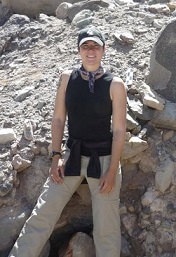Request Information
Ready to find out what MSU Denver can do for you? We’ve got you covered.
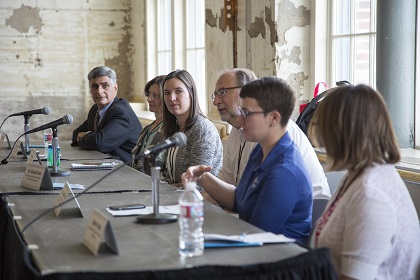
Dr. Nicole Garneau is a taste scientist and public speaker that brings flavor science to the table. Her formal training in genetics and microbiology led her to the Denver Museum of Nature & Science where she serves as the Curator of Human Health and the PI of the Genetics of Taste Lab . In addition to her day job, she is the founder of three companies related to her work studying taste and her interest in food and beverage science. In this capacity, Dr. Garneau serves as a consultant to breweries, wineries, distilleries and restaurants. Through her work in beer, she co-authored the Beer Flavor Map, a resource for identifying the flavor notes of beer. The tool is now used in judging competitions across America, including the prestigious World Beer Cup and Great American Beer Festival (www.beerflavormap.com).
Dr. Garneau is an advocate for women in science, and believes science is for the people. From her research in determining the way a person’s DNA affects their ability to detect and perceive tastes, to the interplay of the different senses in flavor perception, to the complex interaction of food and beverage pairings, she makes science personally relevant. As a sought-after public speaker and science communicator, she has had the honor of being an invited presenter at Mile High TEDx, the Great American Beer Festival, the Craft Brewer’s Conference, and many scientific conferences including the American Society for Microbiology and Experimental Biology. She has given numerous interviews for radio (e.g. Colorado Public Radio), television (e.g. CBS4), and online (e.g. PBS NewsHour). 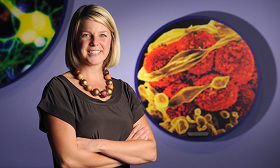
Mair Churchill was born in England and has lived in the USA since 1963. She received a B.A. in Chemistry from Swarthmore College, and a Ph.D. in Chemistry at the Johns Hopkins University for the solution structural analysis of DNA in the laboratory of Professor Thomas D. Tullius. She returned to England as an American Cancer Society Fellow with Sir Aaron Klug at the Medical Research Council Laboratory of Molecular Biology focusing on structural aspects of DNA recognition by protein motifs in chromosomal proteins. After a Rockefeller Academic Exchange Fellowship in crystallography with Professor Ian Wilson at the Scripps Research Institute, she became Assistant Professor at the University of Illinois at Champaign Urbana. In 1998, she moved to the University of Colorado School of Medicine, where she currently is Professor of Pharmacology and Director of the Graduate Program in Structural Biology and Biochemistry.
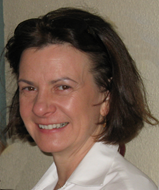
Dr. Richard Davis is currently a Professor with the Department of Biochemistry and Molecular Genetics at the University of Colorado School of Medicine. He is also the Co-Director of the RNA Bioscience Initiative. Dr. Davis’ research area is molecular parasitology and programmed DNA elimination, and his hobbies include traveling, scuba diving, photography, and skiing.
Dr. Davis received his B.A. from Lafayette College in Easton, Pennsylvania with an Honors in Biology. He received his M.S. and Ph.D. from the University of Massachusetts at Amherst in Zoology/Parasitology.
Below are a few of the positions he has held throughout his career:
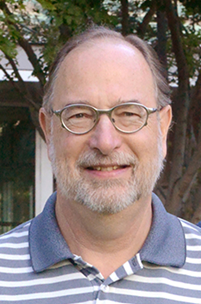
Dr. Sarah Banchefsky is a research associate working with Dr. Tiffany Ito at CU-Boulder in the Psychology and Neuroscience Department.
Sarah graduated from Miami University in 2009, majoring in Psychology and minoring in Middle Eastern and Islamic studies. At Miami University, she participated in the Social Roles Lab for three years, and completed her senior honors thesis under the guidance of Dr. Amanda Diekman and Dr. Amanda Johnston. She applied regulatory focus theory to intergroup dynamics, and found that social groups can frame efforts for social change in terms of prevention (e.g., what they are trying to avoid) rather than promotion (e.g., what they are trying to gain) to more successfully garner support from out group members.
She earned her Ph.D. from CU-Boulder in 2015. Her work focuses on factors contributing to success in science, technology, engineering, and math (STEM), as well as how gendered appearance and physical transformations (e.g., pregnancy) contribute to gender stereotypes.
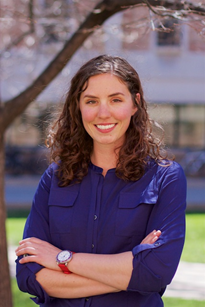
Dr. Kamran Sahami is Professor (full) of Physics at Metropolitan State University of Denver and Adjoint Research Associate at the University of Colorado at Boulder. His research interests include Non-Linear Systems, Electro-optics and Physics and Astronomy Education. He received his Ph.D in Astrophysical, Planetary and Atmospheric Sciences from the University of Colorado in 2001. Sahami also holds two Master of Science degrees in Astrophysics and Applied Physics.
Dr. Sahami joined the faculty of MSU Denver in 2004 after 3 years as a research scientist at CU Boulder working primarily on research projects funded by NASA and the National Science Foundation. In 2005 he received a three-year, half-million dollar National Science Foundation (NSF) grant, along with the Denver Museum of Nature and Science, to explore Astronomy Education in Virtual Immersive Environments. This research and subsequent NSF grants in 2008 and 2009, lead to several publications, most notably the identification of gender-specific learning modalities in classrooms immersive environments.
In 2008, as Chair of the FS Faculty Welfare Committee Sahami introduced and passed same-sex partner benefits for employees and conducted the first comprehensive salary equity study at the institution. In 2012 as Faculty Senate President, led the faculty contingent of the MSU Denver Tenure Rights Task Force, negotiating, revising and re-establishing the language of tenure rights in the University Handbook to be consistent with American Association of University Professors (AAUP) guidelines. Sahami co-founded the MSU Denver Chapter of the AAUP and was elected its first President.
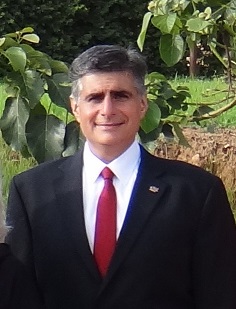
Alysia Palmer is a principle software engineer working for The Stratagem Group at Buckley Air Force Base.
Alysia graduated from Colorado State University in 2008 with a B.A. degree in Journalism. Leveraging her minor in Information Science and Technology (ISTEC), she found a way to combine web-best-practices, computer science, computer information systems and psychology to create a unique application development curriculum. She obtained an internship with Lockheed Martin her sophomore year, which solidified her love for software engineering.
After graduation, she worked full-time for Lockheed Martin as the only woman on a team of six, and then transitioned to a consultant at Aspenware in Denver (working on teams up to 50% female) where she began attending the Women in Technology Conference, inspiring her to fight for women in STEM.
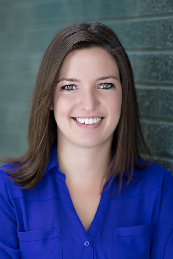
Amber Graham is a Clinical Research Coordinator for Children’s Oncology Group at Children’s Hospital Colorado. During her undergraduate career at MSU Denver, Amber was awarded a full academic scholarship by the Reisher Scholarship Foundation. With the freedom afforded her by their generous support she founded the Women in Science student organization, which was named New Student Organization of the Year in its first year. She earned summer research fellowships with both the Cancer Center at the University of Colorado Denver and the Pediatric Summer Research Fellowship Program. She also worked as a student assistant in an R1 funded laboratory in her final year at Metro prior to graduating with a Bachelor’s of Science degree in Chemistry and Biology (with a little one on the way!).
Immediately after graduation she co-founded a software development company. The mission of the company was to develop software to help laboratories manage their pre-clinical studies. Shortly after founding the company, she was hired on as a Professional Research Assistant at the University of Colorado managing a bio-banking program and assisting with pre-clinical studies. In the summer of 2015, she made the decision to leave her startup company and move into clinical research full time. She serves on the national Children’s Oncology Group CRA research committee and is currently working to develop a national research project to help CRA’s collaborate with clinicians and improve clinical workflow.
Christine M. Pink is an Assistant Professor of Anthropology at Metropolitan State University of Denver and the current Director of the Human Identification Laboratory. She graduated with her Ph.D. in 2013 from the University of Tennessee. Before coming to MSU Denver, Dr. Pink worked with the Defense POW/MIA Accounting Agency from 2012 to 2015 as a forensic anthropologist. There she led archaeological recoveries of human remains, and performed osteological analyses with the aim of identifying missing U.S. service members from past conflicts.
Dr. Pink’s bioarchaeology research centers on prehistoric Andean populations using cranial non-metric trait variation to explore biological affinities within and between regional groups. Her interests in forensic anthropology include ancestry assessment based on cranial traits and sociocultural impacts of positive identifications derived from fragmentary remains.
